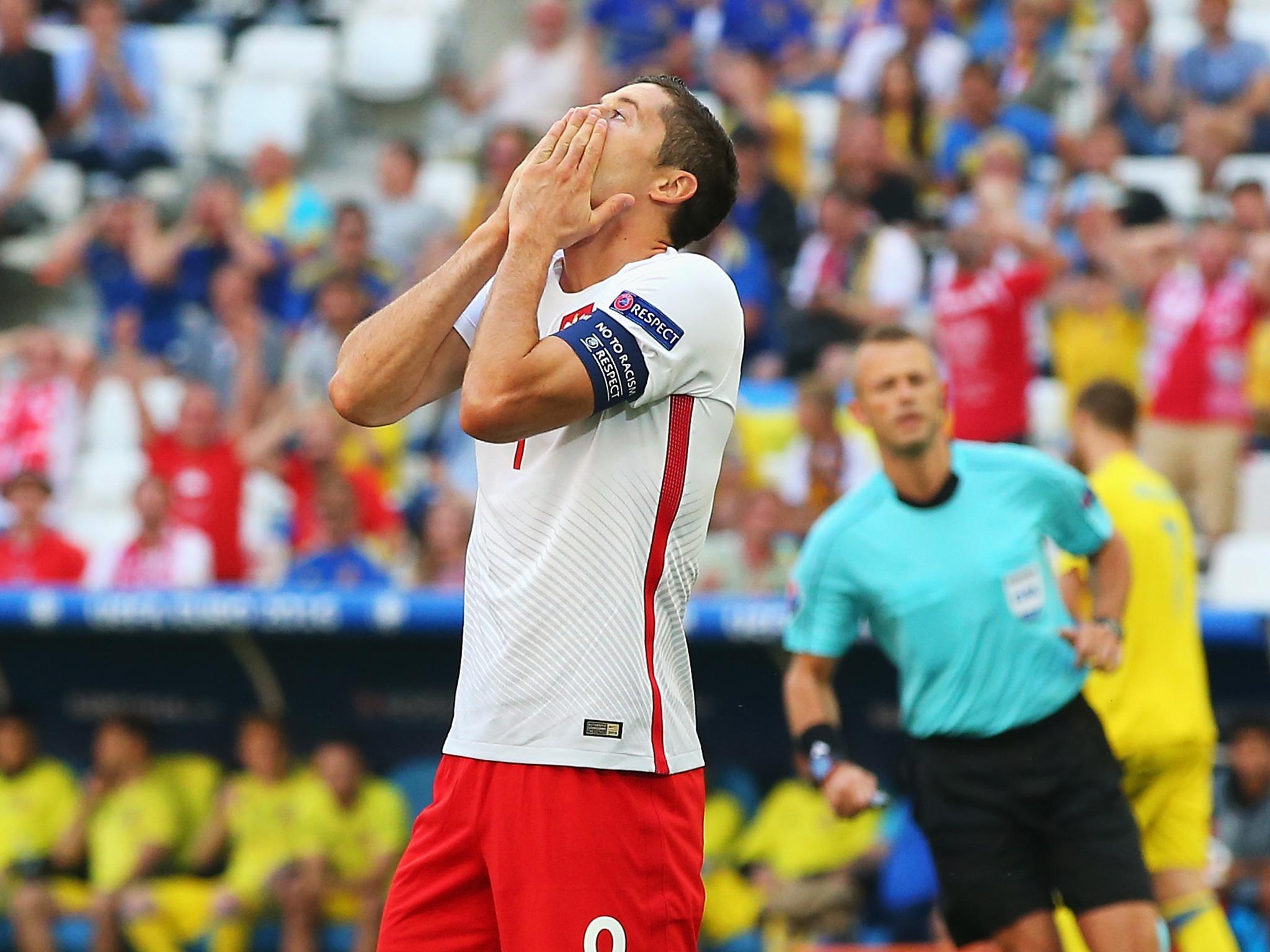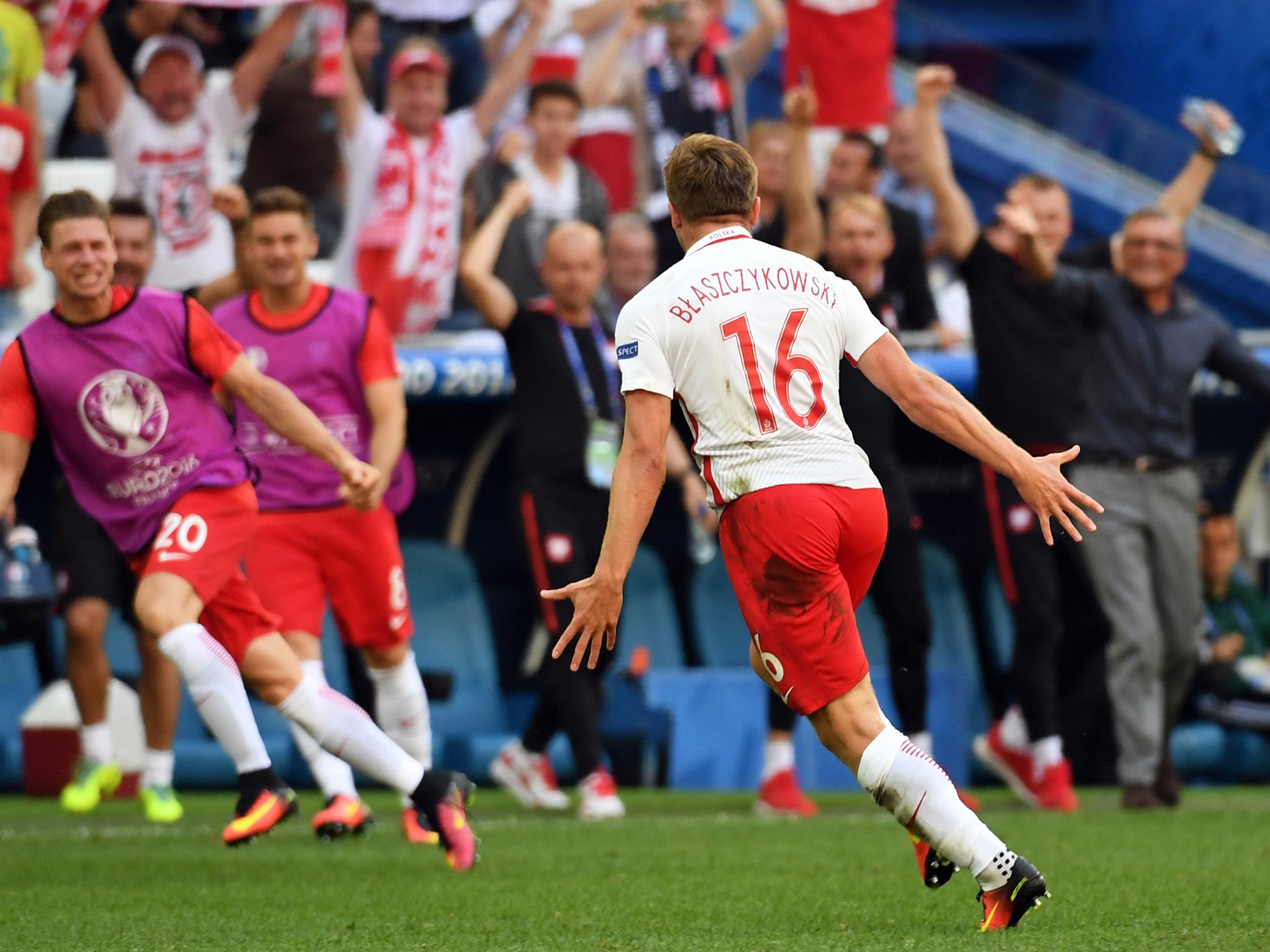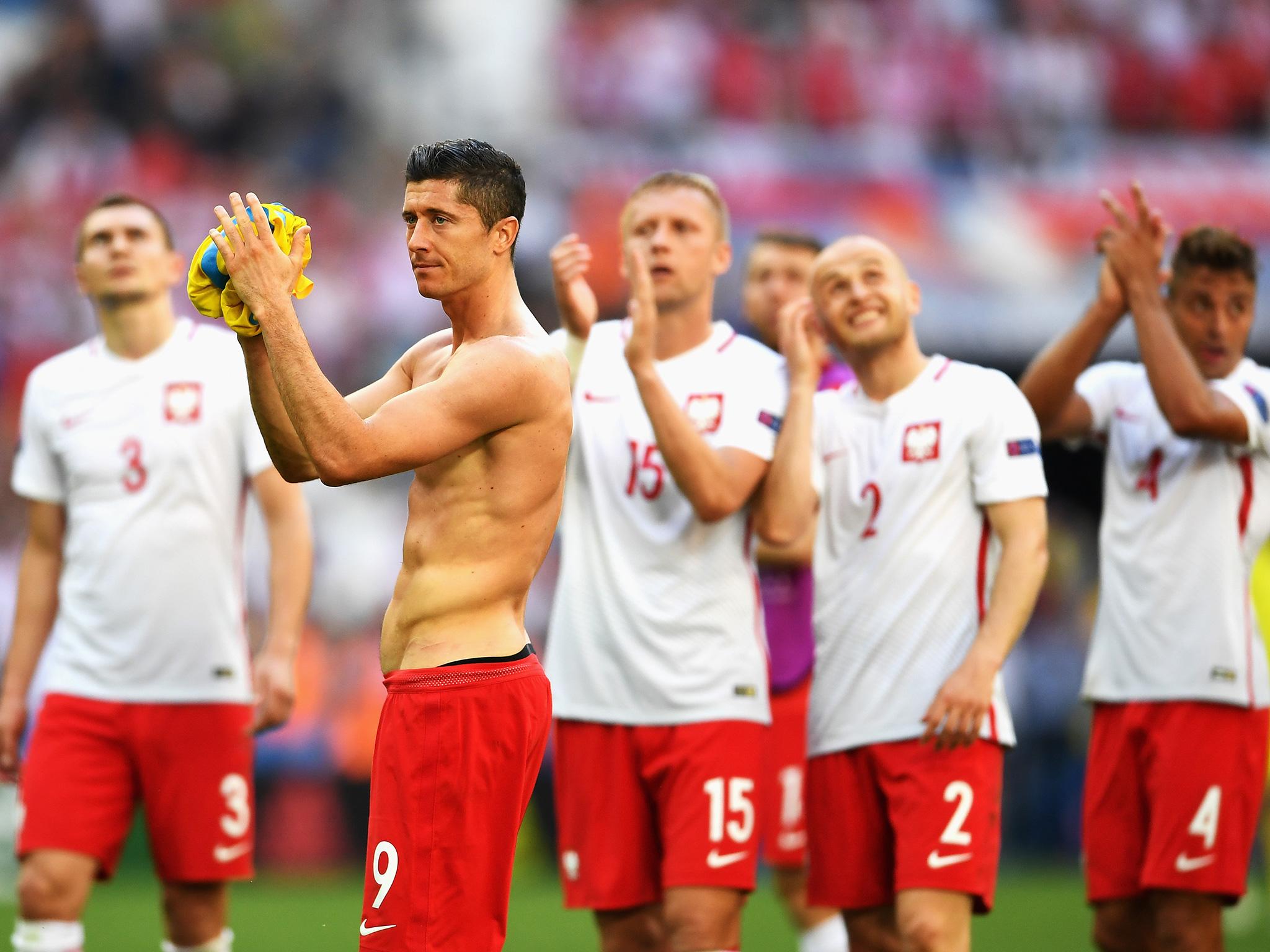Your support helps us to tell the story
From reproductive rights to climate change to Big Tech, The Independent is on the ground when the story is developing. Whether it's investigating the financials of Elon Musk's pro-Trump PAC or producing our latest documentary, 'The A Word', which shines a light on the American women fighting for reproductive rights, we know how important it is to parse out the facts from the messaging.
At such a critical moment in US history, we need reporters on the ground. Your donation allows us to keep sending journalists to speak to both sides of the story.
The Independent is trusted by Americans across the entire political spectrum. And unlike many other quality news outlets, we choose not to lock Americans out of our reporting and analysis with paywalls. We believe quality journalism should be available to everyone, paid for by those who can afford it.
Your support makes all the difference.If Poland were go any distance in this competition, you assumed Robert Lewandowski would be their central figure. Instead, they qualified to face Switzerland in the first knockout game of Euro 2016 without their captain and finest player having had so much as a shot on target.
For Lewandowski this is all rather bad timing. He is 27, at the peak of his powers and anxious for a move to Real Madrid.
The grandiose sweep of the Stade Velodrome would have been quite a stage on which to make a statement. With the game barely underway Lewandowski was standing by the six-yard line ready to convert the kind of opportunities he would have put away instinctively when he was making his name with Lech Poznan, let alone at Borussia Dortmund or Bayern Munich. His body shape was wrong, the Velodrome’s pitch had been wrecked by a rock concert and he was still searching for his form. Under the circumstances, there was nowhere else for the ball to go but deep into the stands.
A few moments later he turned Yevhen Kacheridi, shot through the defender’s legs and past the post. “He is a steam-powered locomotive, the engine of our team,” said the Poland manager, Adam Nawalka. “He has sacrificed some his play for the good of the team but I would back him to score against Switzerland.”
It was another, older Poland forward who ensured they would win this game and Ukraine would leave France having lost all their games. Jakub Blaszczykowski broke into the national team just before Lewandowski. He is blond, rugged and possesses a fierce shot. Almost 10 minutes into the second half he demonstrated it with one that went blisteringly past Andriy Pyatov. Like all his goals, Blaszczykowski would have dedicated it to his mother, murdered by his father when he was 10 years old.

Goals had been something of a premium in this group. Long before it opened, this match between the two hosts of the last European Championship had been identified as one of the potential flashpoints of the tournament.
There were some scuffles and flares let off in Marseilles’ Old Port but, given that these teams came to the Velodrome having scored one goal in six hours of football, the main danger appeared to be spectators falling asleep in the strong Provencal sun.
At half time, as the big screens showed what appeared to be a massacre of Northern Ireland at the Parc des Princes, it seemed that, whatever happened, Poland would finish second in the group.
However, as Northern Ireland continued to resist, there was the intriguing possibility that if Poland scored once more, they would tie with Germany for first place on everything – goals scored, goals conceded and goal difference. Then the two sides would have been separated on the basis of yellow and red cards awarded during the tournament.

It did not happen and in truth a Ukraine equaliser appeared the likeliest climax to the match. Ukraine knew they would be going out before the match kicked off but when the final whistle went they had been eliminated without winning a point or scoring a goal.
Ukraine deserved a little better. They had played well in their opening match against Germany and against Poland they enjoyed the bulk of possession and attempts on goal. It was the second game, in Lyons, that did for them with their manager, Mykhailo Fomenko, admitting his players had fatally underestimated Northern Ireland.
After this defeat he suggested his squad was split between players from Ukraine’s three leading clubs, Dynamo Kiev, Shakhtar Donetsk and Dnipro. He added that the civil war had led to a dramatic decline in the quality of the Ukrainian Premier League that had been reflected here in France.
Fomenko had reacted to the Northern Ireland defeat by dropping five of his players for this game. Solving the aftermath of a civil war would, however, be beyond most football managers.
Ukraine: (4-2-3-1) Pyatov; Fedetskiy, Khacheridi, Kucher, Butko; Rotan, Stepanenko; Yarmolenko, Zinchenko (Kovalenko 73), Konoplyanka; Zozulya (Timoshenko 90).
Poland: (4-2-3-1) Fabianski; Cionek, Glik, Pazdan, Jedrzejczyk; Jodlowiec, Krychowiak; Zielinski (Blaszczykowski ht), Milik (Starzynski 90), Kapustka (Grosicki 71); Lewandowski.
Referee: Svein Moen (Norway)

Join our commenting forum
Join thought-provoking conversations, follow other Independent readers and see their replies
Comments